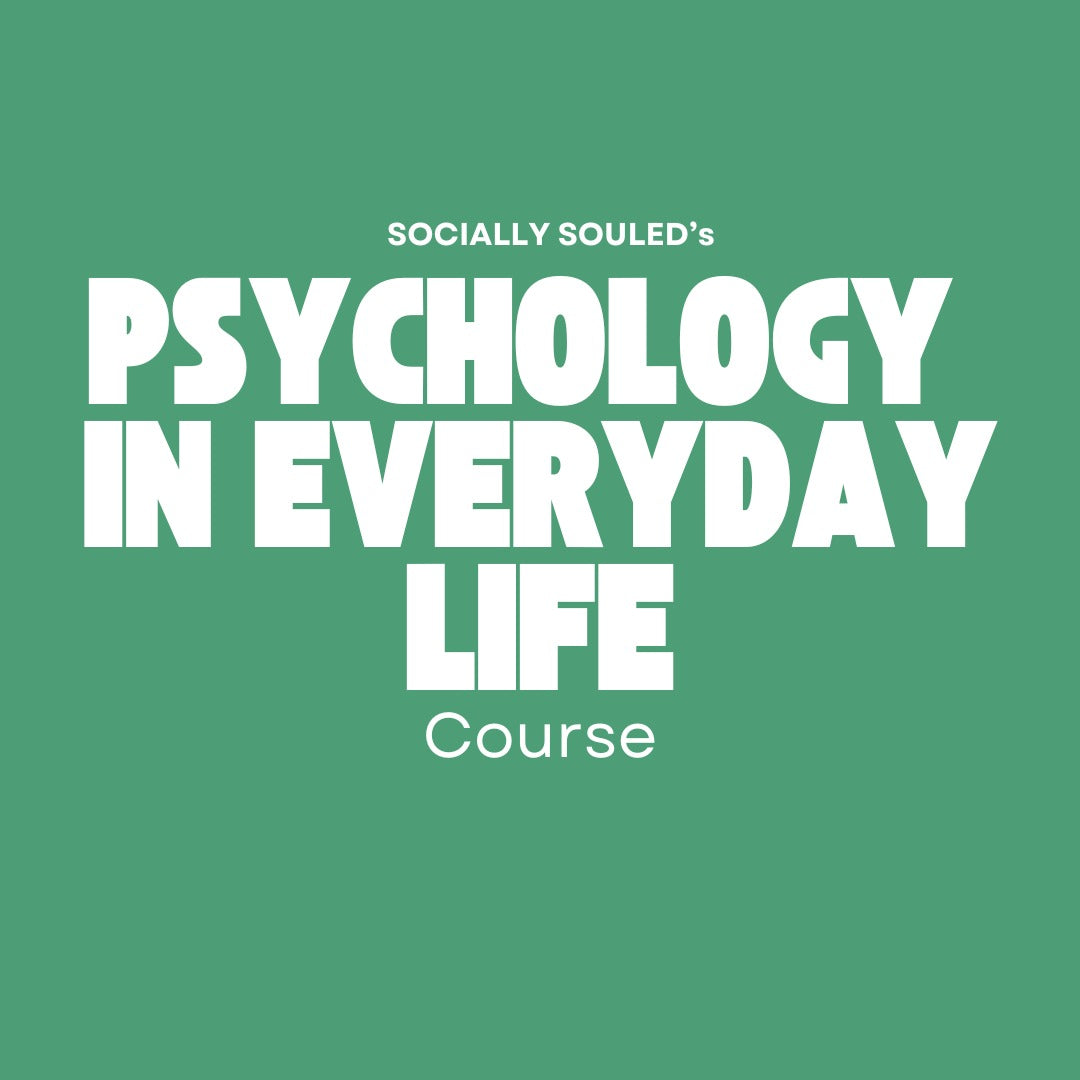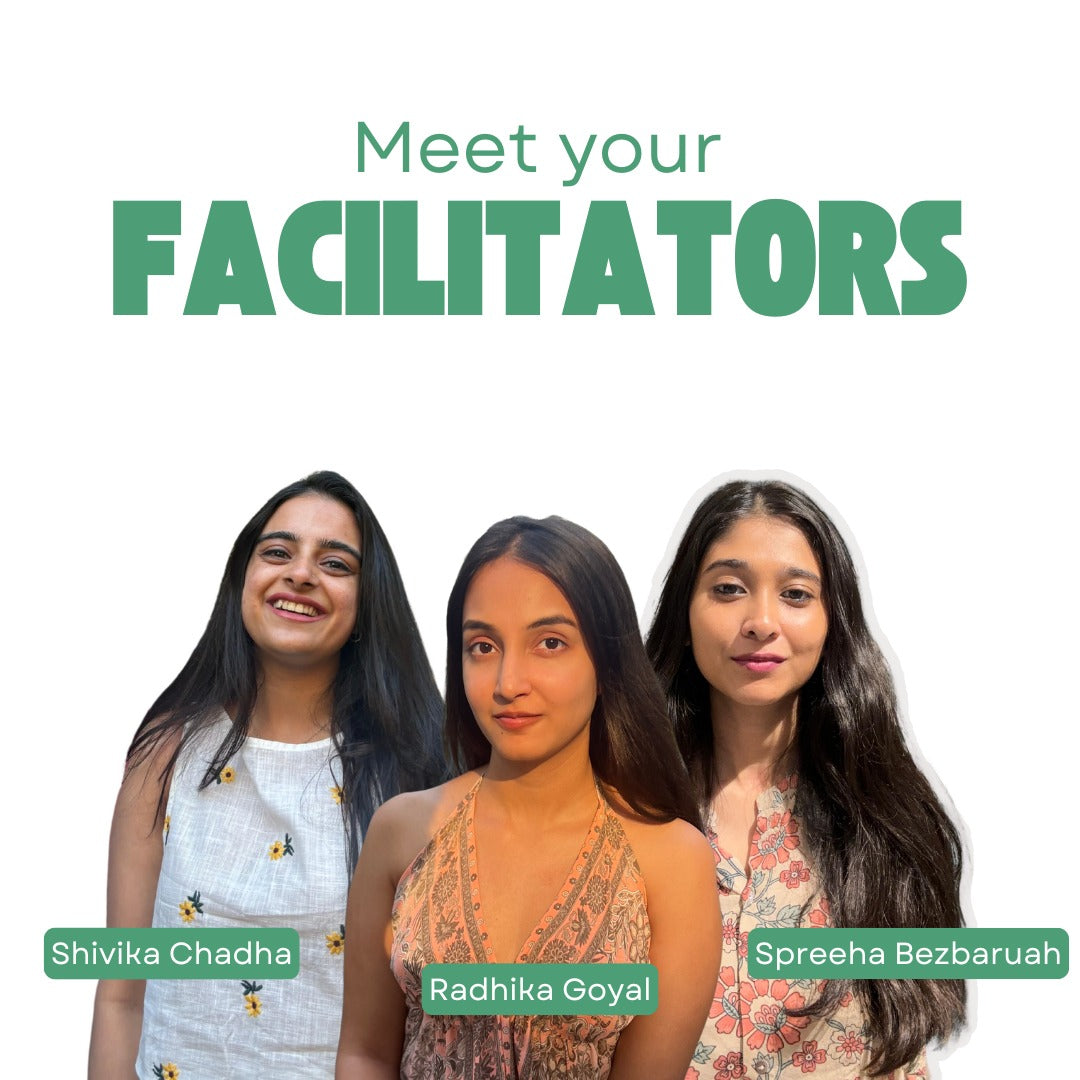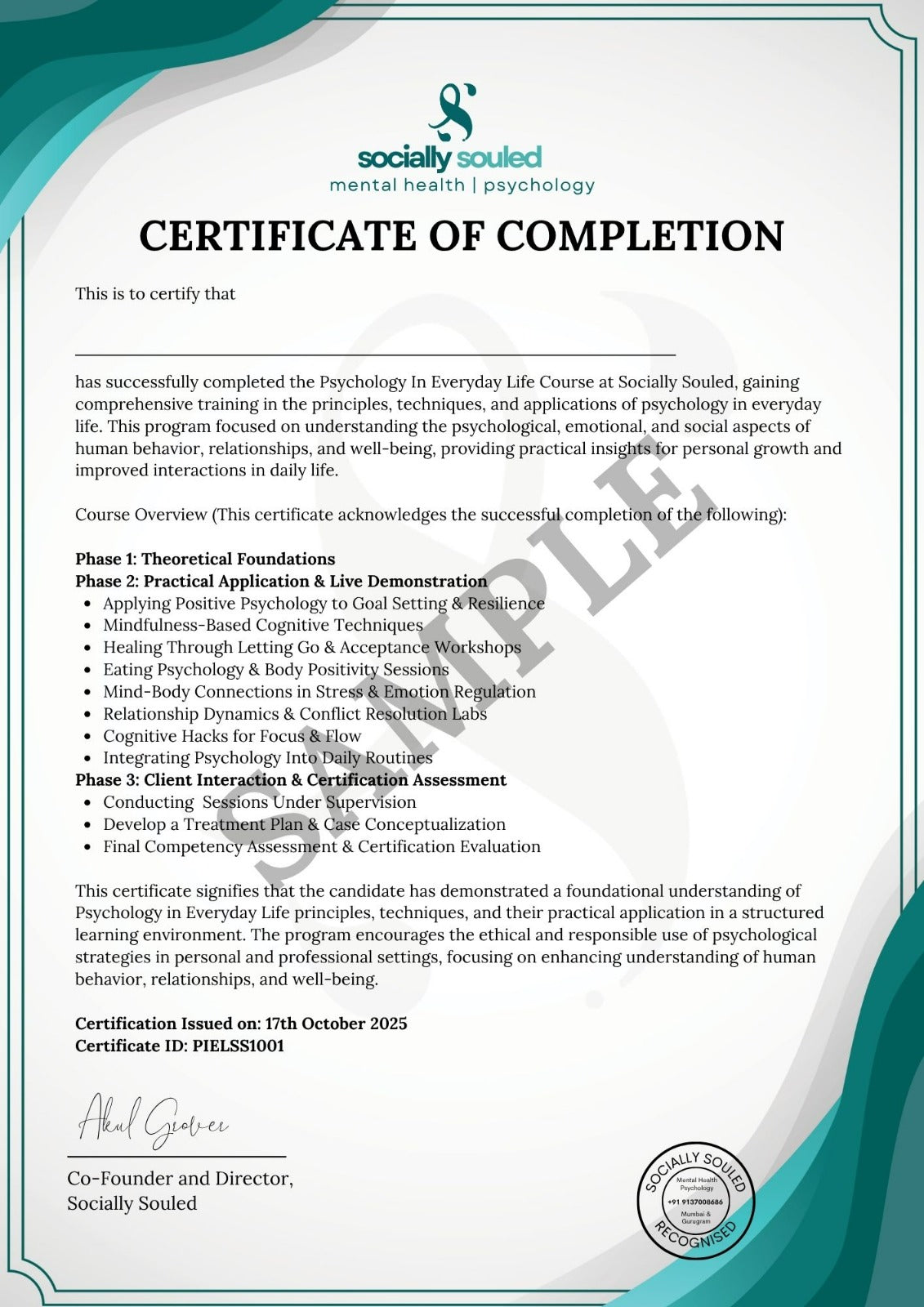
Psychology In Everyday Life
Why Choose This Program?
Program Structure: A 3-Phase Learning Experience
-
Self-Paced Learning (Phase 1)
Learn the Theory -
Live Training (Phase 2)
Practice the Skills -
Supervised Cases (Phase 3)
Gain Real World Experience
Phase 1: Self-Paced Learning (Theory & Foundation)
📌 Objective: Build a strong foundation in Psychology of everyday life before moving to practical application.
Learn at your own pace with structured pre-recorded modules.
✔ Bite-Sized Video Lessons
✔ Downloadable Workbooks & Therapy Worksheets
✔ Quizzes & Thought Exercises for Active Learning
✔ Guided Self-Reflection & Journaling Prompts
Exclusive Access to Our Learning Management System (LMS) for Self-Paced Modules
Self-Paced Foundational Topics:
- Introduction to Positive Psychology
- Foundations of Anger Management
- Understanding Anxiety & Coping Mechanisms
- Basics of Mindful Living
- The Science of Relationships
- The Art of Letting Go
- Psychology of Productivity
- Food & Body Image Psychology

Educators & Supervisors
Ms Spreeha Bezbaruah- Counselling Psychologist, Socially Souled Mumbai
Ms Shivika Chadha- Counselling Psychologist, Socially Souled Gurugram
Ms Radhika Goyal: Clinical Hypnotherapist, Co-founder Socially Souled
Phase 2: Live Training & Skill Development
📌 Objective: Apply skills in interactive live training, role-plays, and case discussions.
✔ Weekly Live Classes (No Lectures! Hands-On Practice)
✔ Breakout Room Activities & Small Group Discussions
✔ Trainer-Led Therapy Demonstrations & Case Reviews
✔ Personalized Feedback on Skill Application
Topics Covered in Live Training:
- Applying Positive Psychology to Goal Setting & Resilience
- Mind-Body Connections in Stress & Emotion Regulation
- Mindfulness-Based Cognitive Techniques
- Relationship Dynamics & Conflict Resolution Labs
- Healing Through Letting Go & Acceptance Workshops
- Cognitive Hacks for Focus & Flow
- Eating Psychology & Body Positivity Sessions
- Integrating Psychology Into Daily Routines
Phase 3: Supervised Casework & Certification
Objective: Transition from training to real-world therapy experience.
✔ Direct Trainer Feedback on Your Sessions.
✔ Case Study Reviews & Real-World Problem Solving.
✔ Supervised Skill Development & Therapist Growth.
Certification Process:
Final Submission of Therapy Casework & Reports.
Evaluation of Skills through Supervision & Case Analysis.
Supervised Practice & Certification Requirements:
- Conduct Therapy Sessions with Clients.
- Submit Session Notes & Case Reports for Trainer Evaluation.
- Develop a Treatment Plan & Case Conceptualization.
- Pass the Final Competency Assessment for Certification.
How the Certification Can Be Used?
Applies Psychology Beyond the Classroom
Enhances Relationships & Communication
Encourages Mindful, Positive Living

Improves Emotional Regulation & Well-Being
Boosts Productivity & Focus
Empowers Personal & Professional Growth

What You Get with the Training Program
- Comprehensive Learning in 3 Phases – Theory, Practical Training & Real-World Application.
- Access to LMS with Downloadable Workbooks & Therapy Resources
- Live Training with Role-Plays, Case Discussions & Q&A Sessions.
- Hands-On Supervised Therapy Practice with Real Clients.
- Mentorship & Support from Industry Experts.
- Official Certification Recognized for Career Growth.
Who is This Course For?
-
Students & Working Professionals —
who want to apply psychology to real-world stress, emotions, and motivation. -
Therapists & Counsellors —
looking to integrate lifestyle-based psychology into sessions. -
Educators & Coaches —
aiming to understand behavioural patterns that affect learning and performance. -
Anyone Seeking Personal Growth —
curious individuals who want to live more consciously and improve mental well-being.
Frequently Asked Questions (FAQs)
-
The program is self-paced + live training. On average, students complete it in 3-4 months, depending on how quickly they move through the phases.
-
No, this course is beginner-friendly! Whether you're new to Trauma informed care or already working in psychology, this structured program helps you build and refine your skills.
-
All live classes are recorded and uploaded. You can access them anytime.
-
Yes, the course is designed to provide you with actionable skills and techniques that can be immediately implemented in your clinical practice. Case studies, role-playing, and interactive sessions facilitate hands-on learning that ensures you can apply the concepts effectively.
-
In Phase 3, you’ll conduct live therapy sessions. Phase 2 will give you the necessary supervision guidance.
-
After completing the course, participants may have access to a community forum for ongoing discussion, periodic webinars for course alumni, and opportunities for supervision or consultation on challenging cases.
